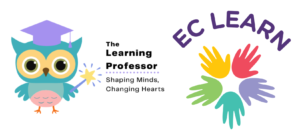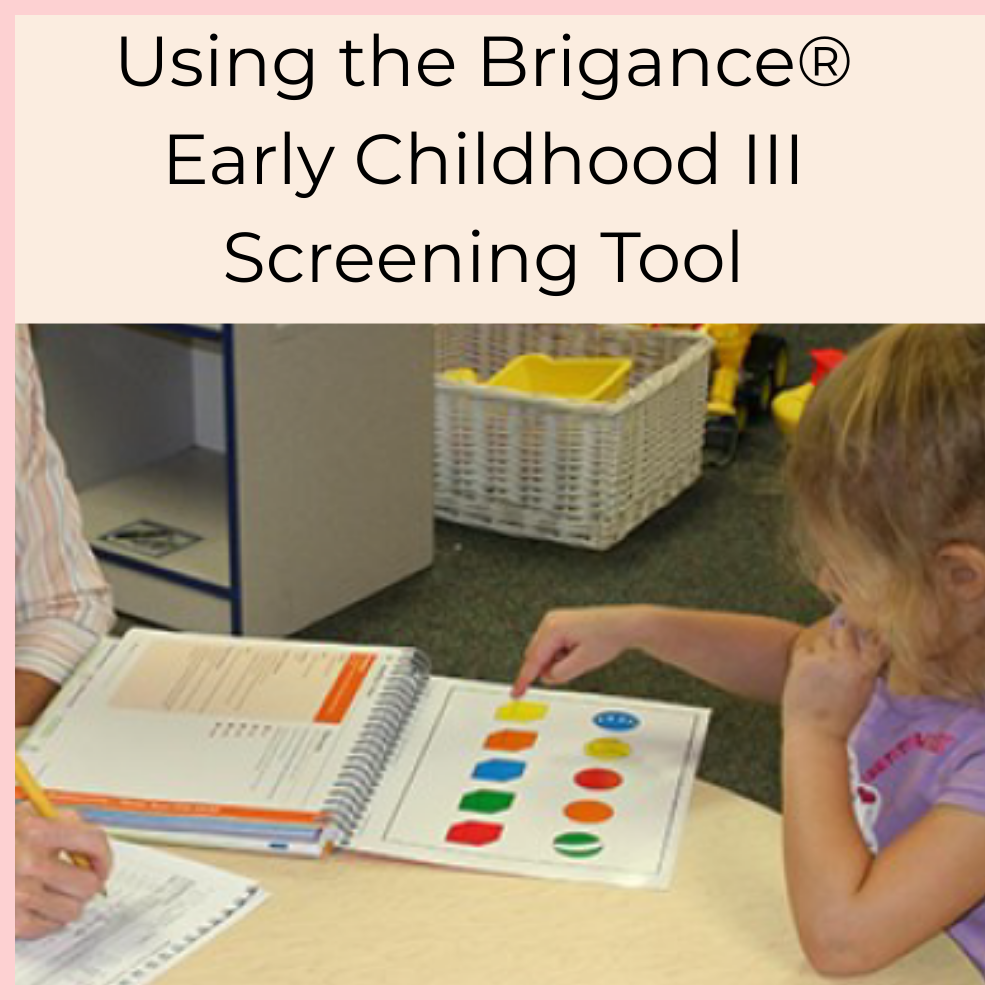Course Catalog
High Quality, Engaging Courses
Classes for Kentucky Early Care and Education Professionals
All Learning Professor/EC LEARN training opportunities are Kentucky approved. Credit will be awarded in TRIS.
REMINDER:
922 KAR 2:240 Section 11 General Training Requirements
(11) A trainee shall not repeat online training courses, including orientation, unless:
- Five (5) years have passed since the online training was completed; or
- Required to as part of a disciplinary directive by a state agency or employer.
Live “webinars” are not included in this 5 year rule. The rule only applies to on-demand, asynchronous trainings.
(19) A staff person shall not accumulate more than fifteen (15) hours of training in a twenty-four (24) hour period.
Our everyday interactions with young children have the power to build something essential within them – resilience. Resilience is a child’s ability to cope with stress, recover from challenges, and keep going even when things are hard. This course offers simple, meaningful strategies to help children grow to become emotionally strong, confident, and capable people.
KY All STARS Standards: Pending Approval for B1R/B2R: Curriculum, Instructional Practices or Teaching and Learning
This course is designed to help you understand and use the Ages and Stages Questionnaires to monitor children’s progress and to make sure that all children have the supports needed to succeed. Participants will learn the purpose of these screeners, when and how to use them, how to score and interpret, and best practice for communicating results with families.
KY All STARS Standards: Approved for A1R Developmental Screening
This course is designed to help you understand and apply the screening tool to assist in the development of child-focused plans of action.
KY All STARS Standards: Approved for A1R Developmental Screening
This course is designed to introduce you to four easy-to-remember steps to transform the behaviors in your classroom. Connect the Dots focuses on supporting the social-emotional development of young children by ensuring a supportive environment, encouraging positive behaviors, emphasizing positive discipline, and embracing children’s unique strengths. You’ll learn practical strategies to address each area to support the children in your classroom better.
KY All STARS Standards: Approved for B1R/B2R: Curriculum, Instructional Practices or Teaching and Learning
This training is a must have for all teachers and parents of young children. This unique workshop blends the worlds of psychology and early childhood to help you understand why children (and adults) behave the way they do. You’ll walk away with practical strategies.
KY All STARS Standards: Approved for B1R/B2R: Curriculum, Instructional Practices or Teaching and Learning
We have to understand empathy in order to help children develop it. This workshop will explore what empathy is, the types of empathy, how it is different from sympathy, roadblocks to empathy, and some classroom strategies to promote empathy.
KY All STARS Standards: Approved for B1R/B2R: Curriculum, Instructional Practices or Teaching and Learning
We’ve all heard of teaching to the test, and we all know that this strategy has no long-term success for children. Instead, let’s “teach to the brain”…use what we know about how the brain develops to influence what we do in our classrooms. Learn six brain based teaching strategies.
KY All STARS Standards: Approved for B1R/B2R: Curriculum, Instructional Practices or Teaching and Learning
Learn the critical features of developmentally appropriate practice (DAP). You will explore the history of DAP, why it is important, the role of the teacher, the role of play, and how programs can support families in children in promoting developmentally appropriate practice.
KY All STARS Standards: Approved for B1R/B2R: Curriculum, Instructional Practices or Teaching and Learning
Learn about the concepts of social justice, privilege, what a single story is, how to avoid it, and how to avoid a tourist-y approach to diversity. Only by understanding all of these concepts can we truly provide an equitable experience for all children.
KY All STARS Standards: Approved for B1R/B2R: Curriculum, Instructional Practices or Teaching and Learning
Nearly one in three US children live in a household where a language other than English is spoken. Including dual language learners in your classroom can be challenging, particularly when you don’t speak the child’s home language. Learn strategies to support these learners.
KY All STARS Standards: Approved for B1R/B2R: Curriculum, Instructional Practices or Teaching and Learning
Not all children sharing a classroom behave the same way, although they may all be in a similar age group. This workshop will explore the different aspects of temperament and how to use this knowledge in your child care setting to create a goodness of fit.
KY All STARS Standards: Approved for B1R/B2R: Curriculum, Instructional Practices or Teaching and Learning
Routines and transitions make up much of the curriculum and learning experiences for infants and toddlers. This course will discuss the importance of these components and give you insight into how to make the most of these learning experiences.
KY All STARS Standards: Approved for B1R/B2R: Curriculum, Instructional Practices or Teaching and Learning
Infants and toddlers naturally engage in both math and science activities. Much of math and science for this age group involves our communication. In this class, we will explore the foundations of cognitive development and math and science development, and then dive into specific classroom ideas.
KY All STARS Standards: Approved for B1R/B2R: Curriculum, Instructional Practices or Teaching and Learning
Social emotional development is the foundation for all curriculum for infants and toddlers. Explore these domains of development, strategies for promoting healthy development, primary caregiving, continuity of care, and building positive relationships.
KY All STARS Standards: Approved for B1R/B2R: Curriculum, Instructional Practices or Teaching and Learning
Is your infant or toddler classroom structured specifically for that age group, or is it more like a watered-down version of the preschool classrooms in your program? Programming specifically for children from birth to 36 months of age is vital.
KY All STARS Standards: Approved for B1R/B2R: Curriculum, Instructional Practices or Teaching and Learning
Every family has a unique culture. But what exactly is culture? This course explores the definitions of culture, values, beliefs, and assumptions. Having a strong understanding of these concepts helps to establish a strong foundation for partnerships with families.
KY All STARS Standards: Approved for C1: Strengthening Family Engagement
Creativity for young children, specifically including the areas of art, music, and movement for infants and toddlers, not only enhances children’s creativity, but also boosts children’s ability to analyze, problem solve, and practice fine motor skills.
KY All STARS Standards: Approved for B1R/B2R: Curriculum, Instructional Practices or Teaching and Learning
Mastering fine and large motor skills are important for children’s growth and independence. This course will explore how to create an environment that supports large motor and fine motor development in infant-toddler classrooms and outdoor environments.
KY All STARS Standards: Approved for B1R/B2R: Curriculum, Instructional Practices or Teaching and Learning
Infants and toddlers move through many stages of play on the road to social competence. Explore what social competence is and how it develops, how children develop friendships in the early years, and the stages of play.
KY All STARS Standards: Approved for B1R/B2R: Curriculum, Instructional Practices or Teaching and Learning
Explore the key principles of assessment in ECE. Learn the purpose of authentic assessment, how to overcome common barriers, and how to use assessment results to create individualized lesson plans for your classroom.
KY All STARS Standards: Approved for BB5: Curriculum-based Assessment
This workshop explores how the neural pathways for reading are constructed, the role of vocabulary, phonics, and handwriting in reading instruction, and practical strategies for the preschool classroom that support these research findings.
KY All STARS Standards: Approved for B1R/B2R: Curriculum, Instructional Practices or Teaching and Learning
Why is a letter of the week approach not the best way to teach these skills? In this workshop we’ll explore fun strategies for teaching children to recognize letters, sounds, and words in ways that prepare children for success in kindergarten.
KY All STARS Standards: Approved for B1R/B2R: Curriculum, Instructional Practices or Teaching and Learning
This workshop will help you understand the types of math experiences that preschoolers should have access to in a preschool classroom. You will learn about number sense, algebra, geometry, measurement, and data analysis.
KY All STARS Standards: Approved for B1R/B2R: Curriculum, Instructional Practices or Teaching and Learning
Literacy is something that must be intentionally planned for young children, but that doesn’t mean that it should be too teacher-directed. This workshop is designed to give you an idea of the types of literacy experiences that children should have in an early care program.
KY All STARS Standards: Approved for B1R/B2R: Curriculum, Instructional Practices or Teaching and Learning
This workshop will explore the types of science experiences that are appropriate for preschoolers. You will learn about the 3 areas of science curriculum that should be part of every early childhood classroom and walk away with lots of ideas on science activities.
KY All STARS Standards: Approved for B1R/B2R: Curriculum, Instructional Practices or Teaching and Learning
Adding math activities to your classroom in a fun and inviting way can be a challenge. This course will cover the mathematical area of number sense, and will offer lots of activities that encourage number sense for preschool children.
KY All STARS Standards: Approved for B1R/B2R: Curriculum, Instructional Practices or Teaching and Learning


























